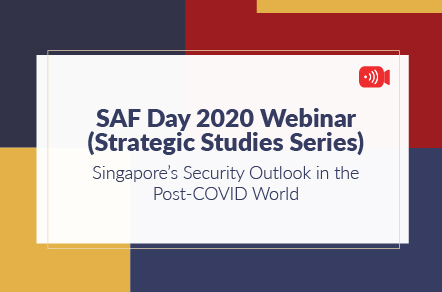

How is the region coping with the threat of natural hazards amidst a global pandemic? In commemoration of World Humanitarian Day on 19 August, the Humanitarian Assistance and Disaster Relief (HADR) Programme at the Centre for Non-Traditional Security Studies (NTS Centre), RSIS, and the ASEAN Coordinating Centre for Humanitarian Assistance on disaster management (AHA Centre), co-hosted a webinar titled “Humanitarian Assistance in Southeast Asia During COVID-19”.
World Humanitarian Day marks the anniversary of the 2003 bombing of the UN headquarters in Baghdad, Iraq, where 22 humanitarian workers were killed. Ever since, the date is an opportunity to pay respect to all humanitarian workers around the globe, along with strengthening the understanding of and respect for International Humanitarian Law. Every day humanitarian aid workers help millions of people around the world, regardless of who they are and where they are. This year’s theme #RealLifeHeroes focuses on what drives humanitarians to continue saving and protecting lives despite conflict, insecurity, lack of access, and risks linked to COVID-19.
Prof Mely Caballero-Anthony, Head of NTS Centre, delivered the welcome remarks and Ms Adelina Kamal, Executive Director, AHA Centre moderated the session. The panel included (i) Tan Sri Dr Jemilah Mahmood, Special Advisor to the Prime Minister of Malaysia on Public Health; (ii) Ms Carol Lee, Executive Director, Mercy Relief; (iii) Mr Masahiro Ishizeki, Head, International Programmes, Mercy Relief; and (iv) Dr Alistair D. B. Cook, Coordinator of the HADR Programme.
The speakers examined how the region is coping with the dual challenges of a pandemic and the threat of natural hazards, while also preparing for simultaneous disasters in the future. Some of the insights from the webinar included (i) the prospects for national “One Stop Shops” to facilitate the government’s relations with local and national partners, including the private sector, all of whom have strong networks within communities; (ii) the need to have a clear vision and goal when trying to effect change in the humanitarian sector; and (iii) the need for humanitarian practitioners to actively engage with other groups such as the private sector and academia.
Catch it here on the RSISVideoCast YouTube channel:




















